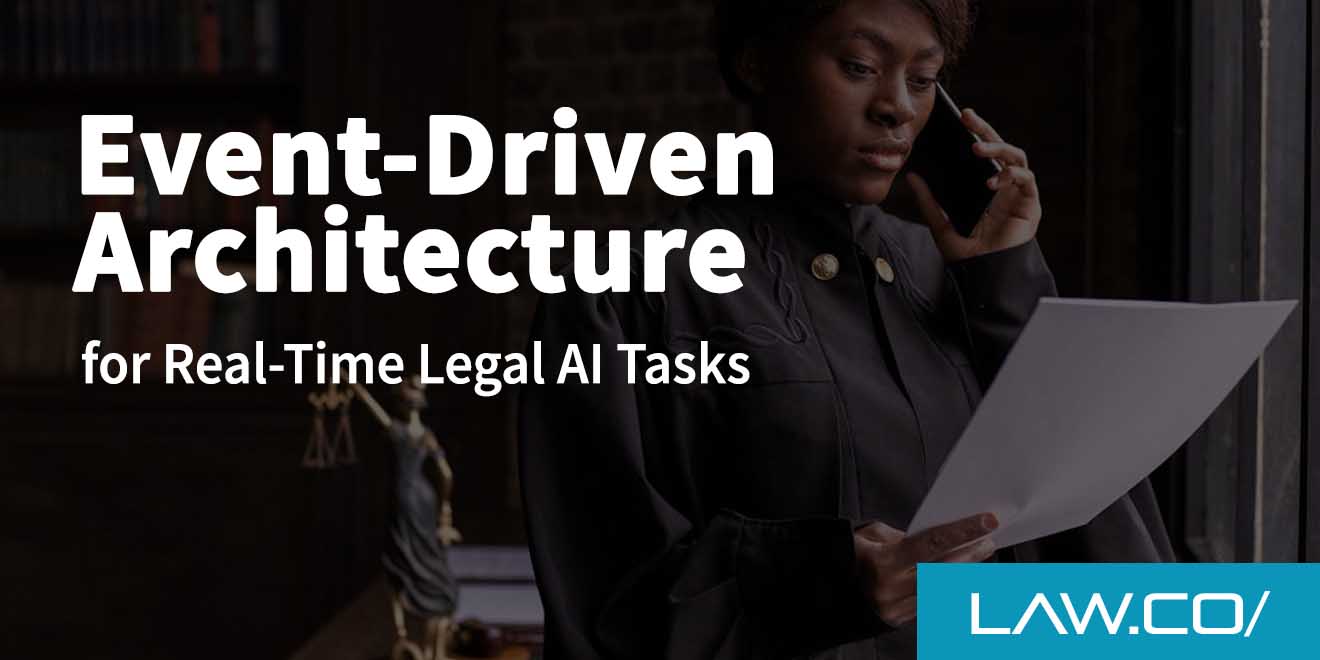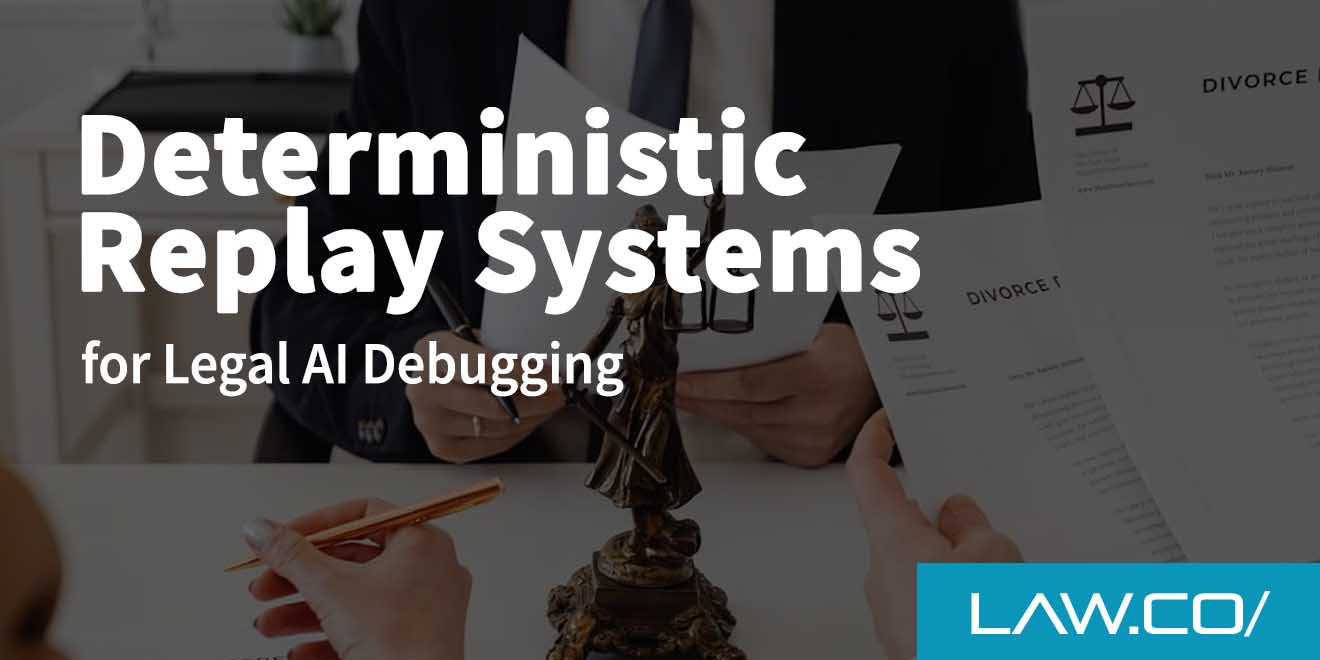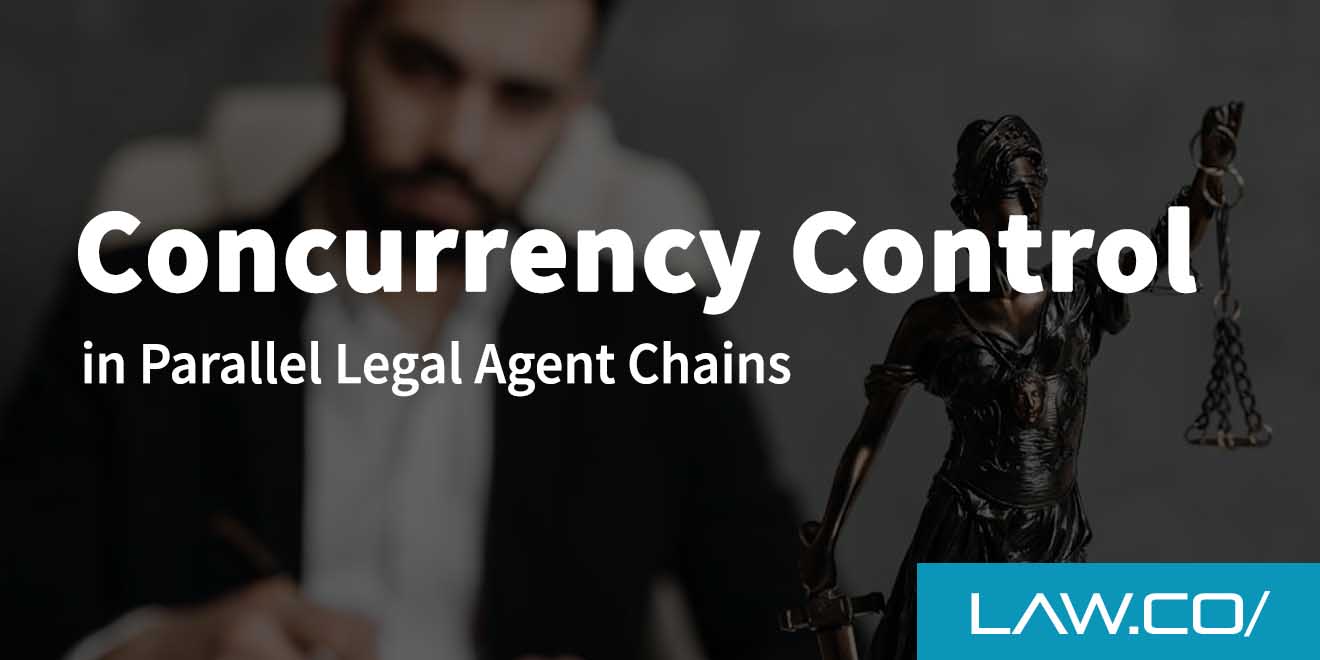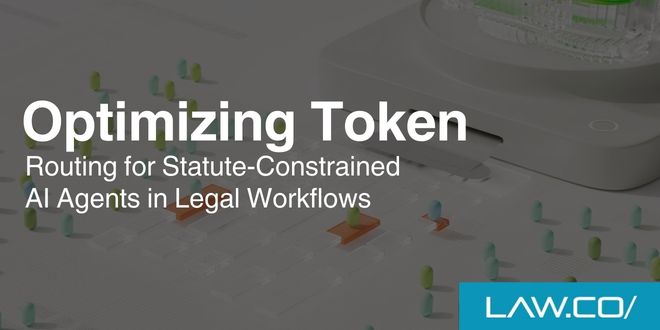

Conversational AI for Legal Writing: Faster, Better, or Both?
AI is already beginning to reshape the legal profession, arguably for the better.With the help of generative AI tools, especially conversational AI, lawyers can hypothetically get more work done and get it done faster. And they might even benefit from an increase in the quality of their finished work.That said, we're still in the early stages of developing AI for lawyers and understanding the context in which it can be used.One of the most common applications of conversational AI for lawyers is in legal writing. If AI is used, does it empirically make legal writing faster? Does it make legal writing better? Is it capable of doing both?Let's explore.
How Is Generative AI Used for Legal Writing?
Generative AI can be used for a wide variety of legal writing tasks, including drafting contracts and client memos. Essentially, a lawyer can input any question they have and receive an answer, or issue a prompt and have the AI generate a section of content for the lawyer to review.Modern generative AI tools can be used for:
- Research and background information. It's possible to use conversational AI tools as a kind of search engine, producing research results and background information when necessary. Lawyers can use this feature to quickly and easily gather information or understand the context in which their legal writing work will be relevant.
- Initial drafting. Conversational AI is also useful for initial drafting. If you practice effective prompt engineering, you can feed the AI a highly detailed, specific prompt that should get the tool to generate an original work that meets all your outlined criteria. Moreover, it can hypothetically do this work hundreds of times quicker than the average human writer.
- Review and feedback. Some conversational AI platforms are also useful for conducting reviews and getting feedback. After a few rounds of revision, lawyers can submit their works in progress to the AI to verify accuracy, check for mistakes, and even gather insights that can be used to make the material better. We don't generally expect that AI tools exceed the abilities of skilled, experienced lawyers, but an extra set of eyes is always valuable.
The Potential for Generative AI in Legal Writing
If used properly and to its fullest potential, the positive impact of generative AI in legal writing could be enormous.The most obvious benefit is that generative AI saves time. It can greatly reduce the number of hours you need to spend researching and produce large sections of legal documents in a matter of minutes. Granted, not all of this research or produced content is going to be perfect, but it doesn't have to be; as long as it's properly reviewed, the time saving benefits are more than enough to justify its use.Of course, in some cases, it's possible for conversational AI to exceed specific human capabilities in terms of quality as well. Quality is a bit subjective and hard to judge, but it's not unreasonable to speculate that at least some of the content produced by these tools it's better than at least some of the content produced by human lawyers.To better answer the question of the “true” potential for generative AI in legal writing, we would need to see more empirical data.Fortunately, this data is rapidly becoming available.
A New Study: Is GPT-4 Faster, Better, or Both?
A recent study by researchers at the University of Minnesota Law School titled Lawyering in the Age of Artificial Intelligence sought to explore the central question of this article: is conversational AI capable of legal writing faster and/or better than human writers?The study followed 60 students from the University of Minnesota Law School. Each student was assigned 4 different legal writing tasks:
- Drafting a complaint.
- Drafting a contract.
- Drafting a section of an employee handbook.
- Drafting a client memo.
Students were randomly assigned to one of two groups: one of these groups wrote the pieces entirely independently, while the other group used GPT-4 for assistance. Students who used GPT-4 were trained on how to use the program before drafting their works.After the works were completed, researchers blind-graded the results and evaluated the time it took to draft each assignment.Unsurprisingly, students who used GPT-4 were significantly faster than their counterparts. There were “large and consistent increases in speed.” However, access to generative AI “slightly and inconsistently improved the quality of participants’ legal analysis.” In other words, the gains in terms of quality were significantly lower and less consistent.Additionally, there were some identifiable patterns in the role that GPT-4 played in producing the work. GPT-4 was not equally useful across all tasks. Among the tasks for which GPT-4 was useful, it was measurably more useful in improving the quality of work for lower-skilled participants.This is, perhaps, to be expected. Imagine that in terms of quality and experience, lawyers can be rated on a scale of 1 to 100. If GPT-4 is hypothetically rated at a 75, it's going to be much more useful for improving the work quality of lawyers who are currently rated a 40 than it is for improving the work quality of lawyers who are currently rated an 85.It's also interesting to note that AI assistance was able to produce speed improvements with close to universal uniformity. It helped all students somewhat equally, regardless of their baseline speed.One additional result found by the study was that students were generally satisfied with using AI for assistance with legal tasks. Students were able to appropriately assess the strengths of AI and successfully predicted the tasks at which this tool would be best suited.The researchers suggest that this study provides evidence that law schools should thoughtfully consider the possibility of teaching law students how to use AI appropriately. There are also implications for how legal matters are handled and billed.
Major Implications for Generative AI in Legal Writing
So what are the major implications for generative AI in legal writing, in light of these new findings?
- Conversational AI is not yet superior to the best lawyers. First, it's important for us to understand that conversational AI tools are not yet superior to the best lawyers. As this study indicated, top law school students don't generally see a significant increase in the quality of their work after using AI. The most talented writers in the legal profession need conversational AI tools even less from a quality perspective. However, since AI is still in its infancy, it's possible that this could change in the future as AI becomes more prevalent.
- Conversational AI is universally capable of expediting tasks. Even at its current state, conversational AI is more or less universally capable of expediting the completion of legal writing tasks. Remember that in this study, students of all levels saw significant improvements in completion time of their respective legal writing assignments. Even if conversational AI hasn't reached its peak in terms of quality, its remarkable speed is more than enough to justify its use.
- Lawyers like using AI. Another interesting finding here is that lawyers are generally satisfied when using AI to facilitate the production of legal writing. This may have to do with the fact that they spend less time on the writing task, or it may be because of the streamlined, simple usability of the tool, or it might be because the study subjects simply found the technology to be interesting. Whatever the case, we have data to suggest that lawyers genuinely like using AI – and this is likely to improve as AI tools get better.
- AI isn’t equally adept at all legal writing tasks. It is worth noting that AI isn't equally adept at all legal writing tasks. This should be totally understandable; tasks that require more nuance and context are naturally going to be less suited for broadly trained conversational AI. While we can expect conversational AI to get better at practically every conceivable legal writing task in the future, we can also expect AI to always be better at more general, broad tasks than more specific, complex ones. It's simply a matter of training volume and familiarity.
- AI is especially valuable to lower-skilled and new lawyers. AI tools are especially valuable to new lawyers and lawyers with lower skills or less experience. Using AI may allow them to close the gap that used to stand between them and their more experienced, more skilled counterparts. Additionally, drafting and practicing with AI may become a vector through which these lawyers can acquire more knowledge and skills.
- AI is especially valuable to time-restricted lawyers. We know that conversational AI is capable of producing high quality work, but we're even more confident that AI tools are capable of saving you time, regardless of your skill level or what type of work you're producing. This time saving benefit applies regardless of your current legal writing speed as well. Accordingly, lawyers who always feel like they're on a time crunch and lawyers juggling multiple priorities stand to benefit the most from using AI.
- Schools and institutions need to start adapting to AI in legal writing. With the prevalence and capabilities of AI, it's only natural that schools and institutions start adapting to the use of AI in legal writing. We can't afford to lag behind in this industry, especially when the benefits of using this technology are so great.
- The best approach is good lawyers working with AI. As you might have suspected, we now have empirical evidence that the best possible approach is using skilled, experienced lawyers in combination with AI. This way, you get access to the best of both worlds: the speed and efficiency of conversational AI with the expertise, nuance, and creativity of a human mind. There may eventually come a time when all the features of conversational AI exceed even the best humans in the field, but such advancements would be years, if not decades away.
Are you interested in learning more about how AI can be used to improve your legal writing?Or are you ready to build and adopt a legal writing AI tool in your law firm?We can help. Contact us for a free consultation today!

%201.svg)










